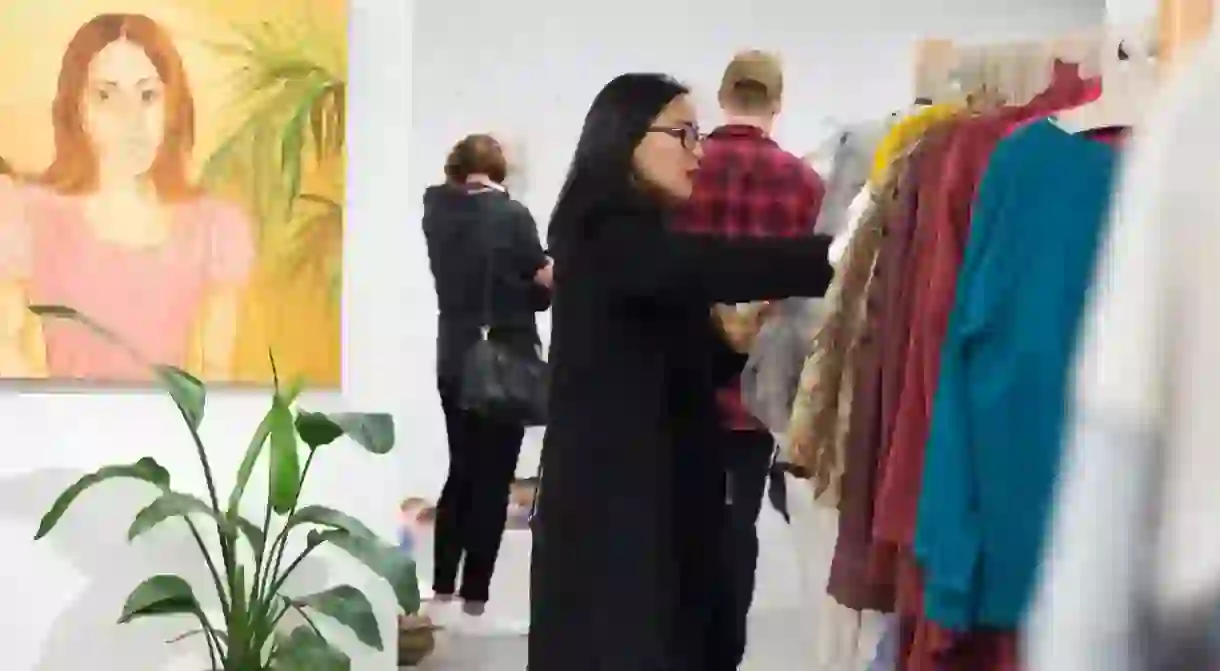How Prairie Underground Is Changing Fashion in Seattle

Since Seattle is known for its small environmental footprint, it’s no wonder that the sustainably-made clothing store, Prairie Underground, chose the Emerald City as its home base.
“The Pacific Northwest is a beautiful region,” Prairie Underground Owner and Nebraska native Davora Lindner explained to Culture Trip via email. “People here value the natural environment and have an ethos of supporting local business. That’s an appealing culture for niche manufacturing.”
Lindner, along with co-founder and childhood friend, Camilla Eckersley, started the company back in 2004, and their continual growth on the west coast proves that the two picked the right city. We chatted with Linder via email to find out more about their efforts in sustainable fashion and building a small, impactful business in the nation’s fastest-growing city.
You previously lived in Nebraska and Minnesota. What about Seattle influenced you to start your company here?
Seattle has a long history of apparel manufacturing. Though it has diminished dramatically in the last 25 years, there is still a lot of soft goods manufacturing that occurs in this region. When we relocated here, it was an affordable city that had an infrastructure for manufacturing. Sustaining local manufacturing remains a big part of our mission, though that is moving further away from Seattle proper. Our work has always been south of Seattle.

What inspired you to pursue a career in fashion and ultimately, ethical fashion?
Ultimately, our friendship inspired our career in fashion. Our shared values continue to guide its evolution. The collection was built on decades of creative collaboration. We both know what the other is capable of and when to keep pushing each other. From the beginning, we decided to align our business with our personal values. What started with organic cotton, hemp, and U.S. production has evolved to encompass deeper issues of social justice and defining the role of the artist in business. Our values remain as important as our company and our designs. One isn’t more significant than the other; they have to exist together or we’ll find something better to do for a living.
What are the challenges of creating and producing sustainable clothing?
The apparel industry the majority of consumers know is based on exploitation of labor and natural resources. Those are difficult conversations that can lead to apathy and aversion to your message. We prefer to explore the meaningful ways individuals can make a difference through their choices. Consuming thoughtfully, educating on the proper care and repair of garments, [and] considering used clothing as a means to balance your wardrobe budget.

What inspired you to create a warehouse boutique and how has it expanded your visibility?
There is a growing desire for individuals to feel more connected to what they buy. The way they buy it makes a difference too. When someone comes to our shop and wants to try on 30 pairs of pants, we can do that with them with zero frustration and individual attention. We’ve created a relaxed environment inside an otherwise industrial space. Our boutique is slightly off-kilter, it looks like an ’80s era office with windows that overlook our pattern room. We established a gallery in the entrance with rotating exhibitions that allows us to invite the greater community into our warehouse in a less transactional manner.
In regards to the clothes themselves, what influences Prairie Underground’s designs?
We favor eccentricity alongside classics—items that customers can wear for years. All of it has a feeling of workwear and utility while remaining incredibly soft. Our clothing is favored for comfort. We offer a variety of bold shapes and very fitted silhouettes. We’re always working on fit and creating garments that fit a broad spectrum, which is quite a feat for a company our size.

Sustainable fashion has gained a bit of momentum with the help of actors, like Emma Watson, who use their platform to talk about the significant national impact of sustainability. Have you witnessed or experienced any change or growth in the last few years, or since you started your business?
Interest in sustainable clothing has increased and decreased a few times since we began in 2004. Not every company survived the decline in interest and we’re one of the few independents that are still known in the category. Our interests are more varied. Sustainability has never been the sole focus of product development, it’s simply one of many considerations. Overall, we try to meet a variety of consumer needs and desires. Looking to the future, we hope to see increased interest in American manufacturing. It’s something politicians talk about but never actually address. We hope that our products have some influence in demonstrating the viability of U.S. industry.













